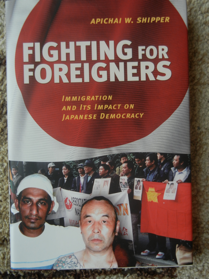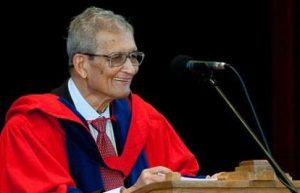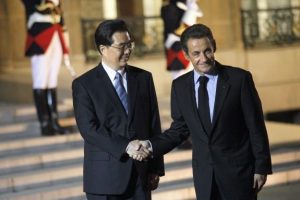G20 and the Five Asian Powers
Memo #115 – In the midst of the great uncertainties of the Euro crisis and great volatility in global financial markets, the G20 Summit in Cannes, happening from November 3 to 4, 2011, is taking place at a critical time. Markets expect more coordination and more governance, although there are large gaps between US and EU interests. Strikingly, Asia owns five of the 20 seats in the G20 (China, India, Japan, Korea, and Indonesia) and is in a pivotal position. But will the five Asian powers coordinate their positions?
Foreign Workers and the Wildfires of Democracy in East Asia
Memo #111 – As democratic movements spread to the Middle East and North Africa, hopeful observers and nervous authoritarian leaders wondered when they will reach Asia. In fact, they already arrived there in the late 1980s. But another East Asian democratic revolution has been taking place over the past decade, brought about by foreign workers.
AMRO – Fleshing out Regional Monetary Cooperation in East Asia
Memo #90 – On May 4, 2011, representatives of the ASEAN +3 group took another critical step forward in realizing the goal of a full-fledged regional financial entity. These developments have special importance given the leadership vacuum at the International Monetary Fund (IMF) and the intransigence of the European Union and the United States in further democratizing the process for leadership selection at the IMF.
Nobel Laureate Amartya Sen Receiving UBC Honorary Degree (Video Recording)
Memo #81 – Nobel laureate economist Amartya Sen was awarded an honorary degree by The University of British Columbia at a special ceremony on April 21, 2011. In his address, Dr. Sen argues for an interdisciplinary approach to the pursuit of knowledge, citing the economist Adam Smith as an exemplar of integrating disciplines and thereby enriching the very nature of reasoning itself. He further draws upon the pragmatic social strategy of the Indian Nobel laureate poet Rabindranath Tagore, whose ideal of inclusivity in both education and life would, says Dr. Sen, resonate profoundly with UBC’s own efforts at productive dialogue between disciplines.
Sino-European Hope for the G20 in 2011
Memo #63 – Is the G20 still useful? What can we expect of it this year? Analysts in Canada and the US are often quick to discount the G20 process as meaningless summitry among too many countries focused on widely divergent domestic agendas and embroiled in pre-electoral politics. Ian Bremmer and Nouriel Roubini both call this a G-zero situation.
Espoirs Sino-Européens pour le G20
Memo #63 – Le G20 a du mal à s’affirmer comme instance politique capable de résoudre énergiquement les risques systémiques, notamment financiers, et déçoit donc ceux qui en espéraient le plus.
East Asia’s Population Crisis: Solutions
Memo #61 – Japan reported missing 230,000 centenarians in September 2010. This dramatic news highlighted among other things, the rapid aging of Japan’s population and its low total fertility rates. For the past decade, demographers have called attention to the impending population crisis in East Asia. Several countries saw fertility rates plummet to well below 2.1 births per woman – the rate required to sustain a population, assuming all other factors remain relatively constant. The problem has been compounded by increased life expectancy and the lack of immigration flows to compensate for birth and death rates.
The Reincarnation of the Asian Monetary Fund: AMRO
Memo #51 – In the annals of Asian mythology, reincarnations of gods are professed to be far more potent than their ineffectual forebears; they are not only able to fulfill unfinished endeavours but also do so more dexterously. If mythology can serve as an indicator, then the recent establishment of the ASEAN +3 Macroeconomic Research Office (AMRO), a reincarnation of the doomed 1997 Asian Monetary Fund (AMF) to be headquartered and operational in Singapore in early 2011, represents a major regional feat. By institutionalizing the regional capacity to financially rescue distressed East Asian economies in moments of peril, the ASEAN hopes to eternally efface the excruciating memories of the Asian financial crisis without having to habitually turn west as they did in 1997.
एशियाई मुद्रा कोष का पुनर्जन्म: एमरो
Memo #51 – एशियाई पौराणिक कथाओं के इतिहास में, देवताओं के अवतार से अधिक उनके निष्प्रभावी पूर्वजों से अधिक शक्तिशाली दूर होना प्रकट कर रहे हैं, वे ही अधूरा प्रयासों को पूरा करने में सक्षम नहीं हैं लेकिन यह भी बहुत अधिक कुशलता से करते हैं. अगर पुराण एक संकेत है, तो आसियान 3 व्यापक आर्थिक और रिसर्च (एमरो) कार्यालय, बर्बाद 1997 एशियाई मुद्रा कोष (AMF) के लिए 2011 के शुरू में मुख्यालय और सिंगापुर में परिचालन किया जा के एक पुनर्जन्म की हाल की स्थापना, के रूप में सेवा कर सकता है एक का प्रतिनिधित्व करता है प्रमुख क्षेत्रीय करतब. क्षेत्रीय क्षमता को संस्थागत करने के लिए आर्थिक संकट के क्षणों में व्यथित पूर्व एशियाई अर्थव्यवस्थाओं बचाव करके, आसियान के लिए सदा के लिए आदतन पश्चिम बारी के रूप में वे 1997 में किया था करने के लिए बिना एशियाई वित्तीय संकट के कष्टदायी यादें मिटाना की उम्मीद है.
Canadian Mining and Human Rights in Asia: Building an Advantage or Dismantling Competitiveness?
Memo #16 – On September 20, 2010, Canada’s House of Commons will give third reading to the Private Members Bill, C-300. If passed, it will have significant implications for the Canadian extractive industry’s nearly $9 billion worth of mining assets throughout the Asia-Pacific region. It is expected to draw fierce opposition from the Conservative side of the House. Although the proposed law has sparked a much-needed debate on mining and human rights, it is deeply flawed.



